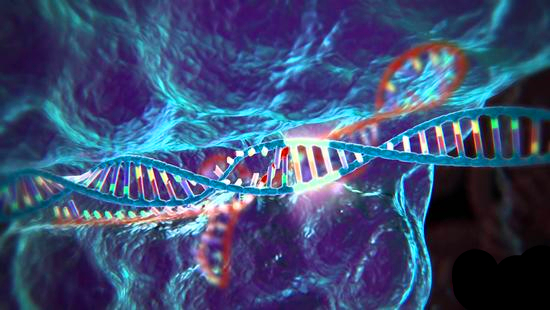If the genetically defective gene can be repaired from the embryonic level, does that mean that the parent's genetic disease will be blocked and not passed on to the child? Professor Liu Jianqiao from the Reproductive Medicine Center of the Third Affiliated Hospital of Guangzhou Medical University released a new research achievement on the 20th. For the first time, the CRISPR gene editing technology was applied to human diploid embryos (ie, an egg and an embryo composed of sperm). The restoration of embryos carrying genetic mutations confirmed the possibility of gene editing technology to treat genetic diseases by modifying defective genes. First applied to human diploid embryos On March 1st, the team of Prof. Liu Jianqiao, director of the Reproductive Center of the Third Hospital of Guangxi Medical University and the Key Laboratory of Reproduction and Genetics of Colleges and Universities, published the human diploid embryo in the international journal Molecular Genetics and Genomics. The latest research in genetic editing of eggs and a sperm-based embryo confirms that CRISPR gene editing technology allows scientists to make targeted modifications to human DNA, providing the possibility to treat genetic diseases by modifying defective genes. This is the world's first description of the application of CRISPR technology in human diploid embryos. In 2015, Professor Huang Jun of Sun Yat-sen University released a study to try to change the special genes involved in blood disorders in the human embryo, beta thalassemia; in 2016, Dr. Fan Yong from the Guangxi Medical Academy tried to use triploid embryos (two A sperm and an egg combine, because of a group of chromosomes, the embryo itself has defects) to edit the gene to resist infection. However, scientists are still making unremitting efforts on how to use CRISPR gene editing technology in normal embryos. The team led by Professor Liu Jianqiao first applied the CRISPR gene editing technology to abnormal triploid embryos. The results showed that the repair rate was not high, only about 10% to 20%. Subsequently, the Liu Jianqiao team tried to apply it to diploid embryos. Embryonic level repair genetic mutation The Liu Jianqiao team research institute used the immature eggs donated by the patients of the Guangxi Medical and Veterinary Medicine Center. The researchers first induced these immature eggs in vitro and then paired them with the donated sperm to obtain 20 pieces. Diploid embryos. In the trial, the donor was a genetic mutation carrier, and half of the theoretically donated sperm carried a genetic mutation defect gene. Ppe Nitrile Gloves,Aql4.0 Industrial Gloves,Ppe Non-Medical Equipment,Disposable Powder Free Nitrile Gloves Puyang Linshi Medical Supplies Co., Ltd. , https://www.linshimedicals.com